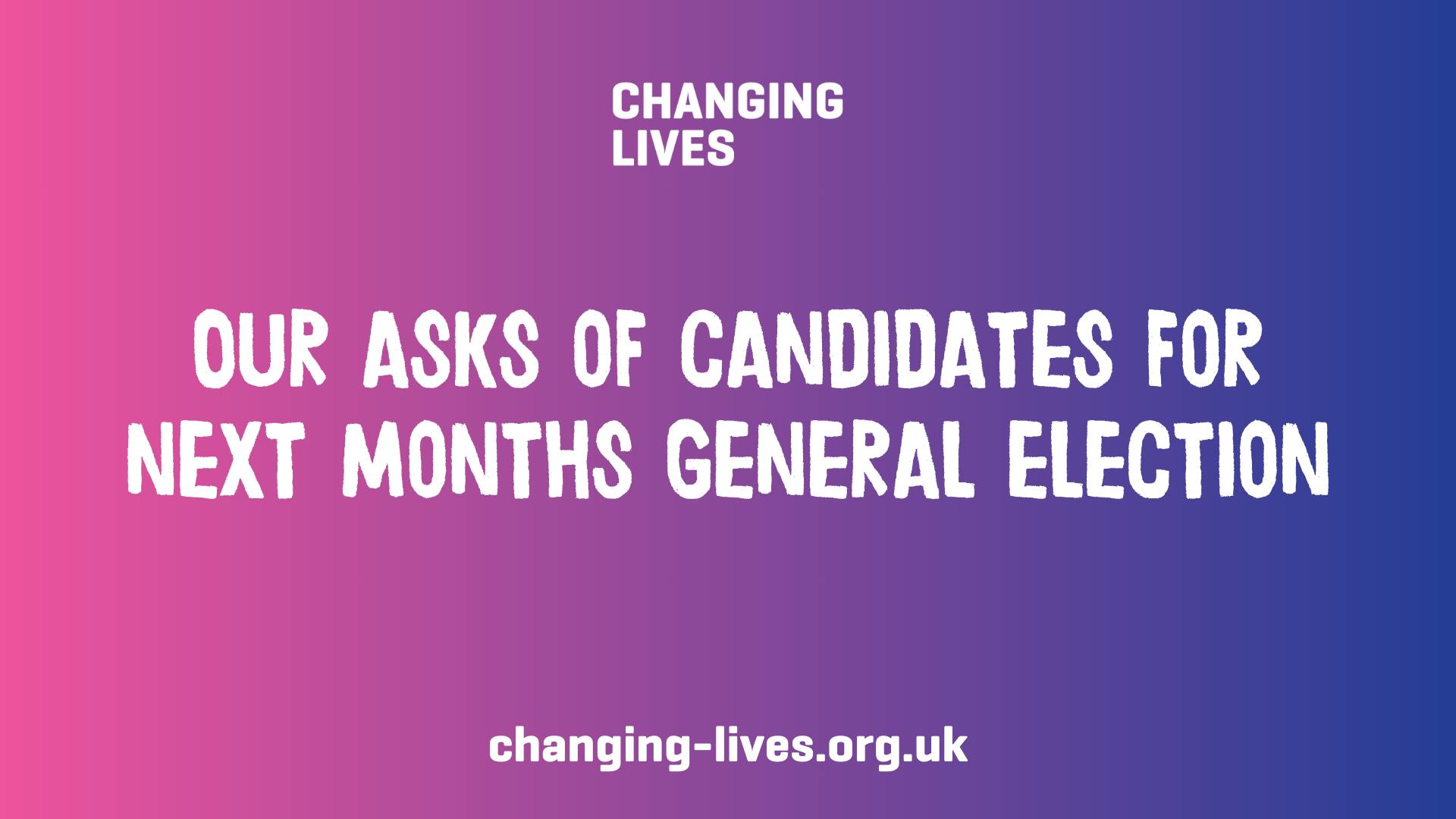Our Policy Manager Philippa Rousell breaks down our main political parties positon on criminal justice as detailed in their manifesto.
This is the next blog in our series analysing what the main party manifestos say about themes that affect the people who access our services. Today we’re looking at criminal justice and how the next government could prevent crime and reduce reoffending. We won’t be saying who to vote for, but will be comparing what each party is proposing to what we’ve been calling for in our manifesto Breaking Down Barriers.
Our criminal justice system needs not only substantial investment but also a radical rethink about how we tackle different forms of crime and the people who commit them. Our prisons are currently overflowing, yet politicians are often scared about being viewed as ‘soft on crime’ so often focus on locking more people up for longer.
We would like to see an ambition to reduce the number of people in prison. Any measures to tackle the immediate problem of prison capacity, such as creating more prison spaces, must be combined with a clear plan to reduce the prison population in the long-term.
Recent measures such as the early release scheme only transferred capacity problems onto the equally overstretched probation service. We need to see urgent investment in the probation service so that long-term goals such as an increase in community sentences for low-level offending can be properly resourced.
We also need to see more early intervention so that people do not reach the point of probation or prison. Diversion at an early stage is key to reducing reoffending, but there is not always something to divert people to, so we are setting them up to fail. There is currently a postcode lottery with regard to both police diversionary practices and the level of support available to people, meaning people are not being given fair access to justice across the country.
We would therefore like to see the next government invest in pre-court diversion and out of court disposal schemes across the country, where people are able to address their offending behaviour in the community and ideally in safe, trauma-informed, gender-specific spaces.
Let’s take a look at what the main political parties have to say about criminal justice. We’ll mainly be looking at measures targeted at those who commit crimes, or are at risk of doing so, but also acknowledge the importance of appropriate support for victims of crime.
Conservative
The Conservatives are particularly focused on being tough on crime including anti-social behaviour. They plan to cut anti-social behaviour by rolling out Hotspot Policing, expanding community payback and legislating to evict social tenants who repeatedly disrupt their neighbours. They will also toughen up community sentencing by increasing the use of community payback and electronic tagging.
People who commit certain offences will end up in prison for longer including making life imprisonment without parole mandatory for the most serious murders, and requiring those who commit rape and other serious sexual offences to spend the whole of their sentence in prison. To deal with the prison capacity issues they will build four new prisons, with the target of 20,000 new prison places by 2030 and remove more Foreign National Offenders.
They will invest in rehabilitative services such as drug treatment, education and employment.
Labour
Labour also plan to crack down on anti-social behaviour, including introducing new Respect Orders with powers to ban persistent offenders from town centres.
They have a particular focus on young people involved in or at risk of becoming involved in crime. This will include creating a new Young Futures programme with a network of hubs and placing youth workers and mentors in A&E units and Pupil Referral Units.
Labour have pledged to review sentencing, but have not given more specifics of what that review would cover. They will conduct a strategic review of probation governance, but there’s no mention of additional investment.
They intend to build more prison spaces and work with prisons to improve access to purposeful activity and ensure that everyone has a pre-release plan before leaving custody. They will do more to support prisons to link up with local employers and the voluntary sector to get people into work.
Liberal Democrats
The Liberal Democrats plan to improve rehabilitation in prisons and on release. This will include ending prison overcrowding; recruiting and retaining more prison officers; improving the provision of training, education and work opportunities in prison; ensuring that every prison has a ‘through the gate’ mentorship programme; and introducing a National Resettlement Plan. They will strengthen supervision in the community through proper funding and greater coordination between the prison service, probation service providers, the voluntary and private sector and local authorities.
They will make youth diversion a statutory duty so that every part of the country has a pre-charge diversion scheme for young people up to the age of 25. They will also bring a gender-specific approach to criminal justice by establishing a Women’s Justice Board and providing specialist training for all staff in contact with women in the criminal justice system.
Green
The Green Party plan to focus on rehabilitation through investment in the probation and prison services, preferring to rebuild lives rather than condemning them to a downward cycle of crime and imprisonment. They acknowledge that prison is ineffective at reducing reoffending, especially short sentences, and would legislate for a presumption against custodial sentences under two years.
They plan to ensure diversion programmes for all low-level drug and alcohol related offences and for all young people arrested for low-level offences. They also plan to expand restorative justice, both to give victims a voice and to help people who commit crimes take responsibility for the harm they have done.
Reform UK
Reform plan to implement a zero tolerance approach to crime, including mandatory life imprisonment for drug dealing and trafficking, and more than one violent or serious offence. They would increase the criminal justice budget from £10 billion to £12 million to ensure more high calibre staff and start building 10,000 new prison places, including commissioning disused military bases if needed.
As a charity, Changing Lives remains politically neutral and does not endorse any particular party or candidate. We have focused on the main parties that cover the whole of the UK, which means we have not included an analysis of the policies of parties that only operate in Wales, Scotland or Northern Ireland. This is a non-exhaustive analysis of each party’s policies.
The full manifesto of each party is available to read here: Conservative, Labour, Liberal Democrat, Green, Reform UK.






